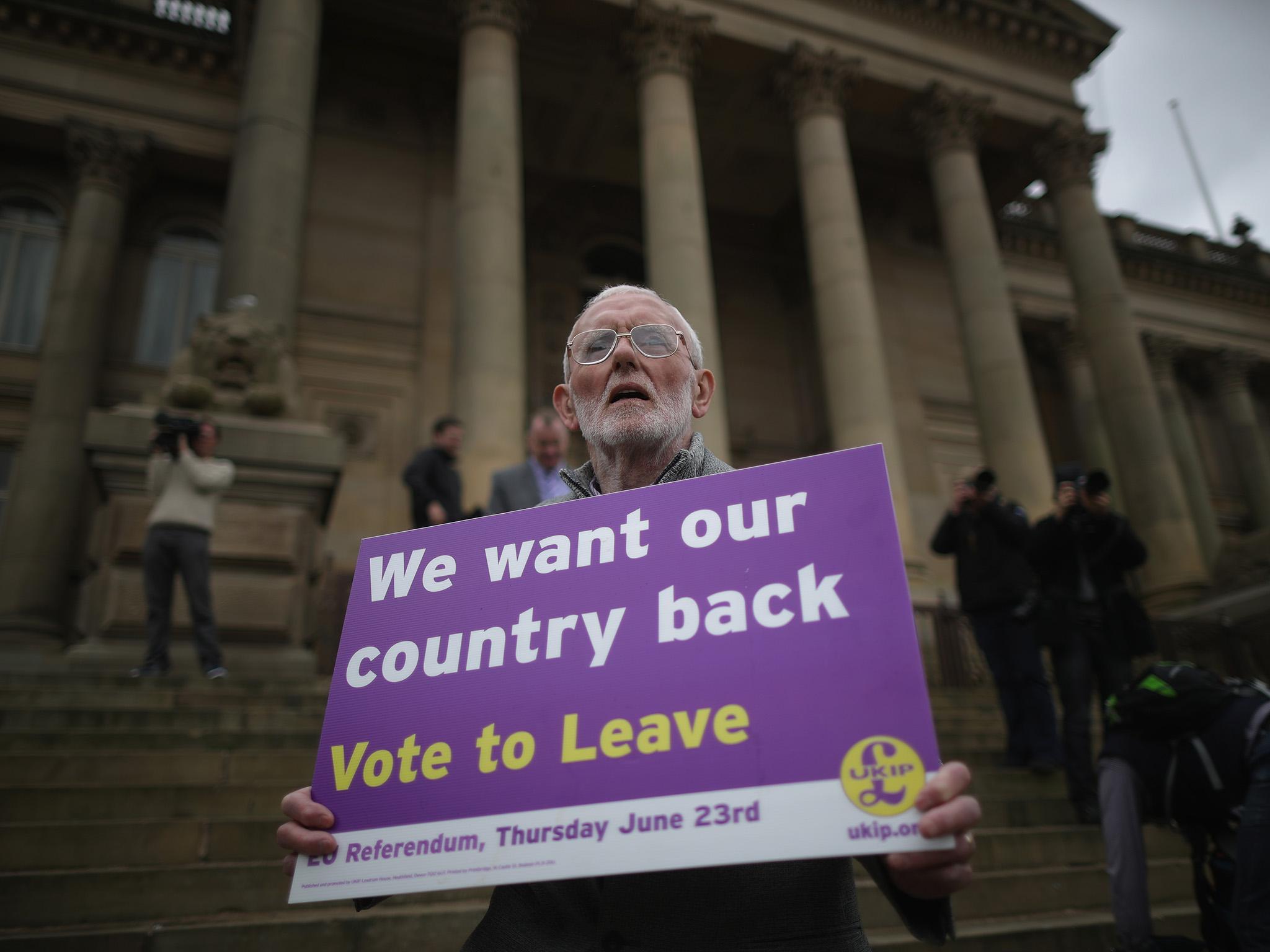Austerity and class divide likely factors behind Brexit vote, major survey suggests
Some 60 per cent now identify as working class and hold strong views on immigration, benefits and the unemployed

Years of austerity and the end of a “golden age” of upward social mobility seen in later 20th century Britain may have been a major factor in the vote to Brexit, according to the authors of a major new report into social attitudes.
The latest annual British Social Attitudes Survey found that 60 per cent of people in the UK now describe themselves as working class – the same level as in 1983 – and concludes that contrary to the claim of many, “we are clearly not all middle class now”.
The 2015 report by NatCen Social Research found the years of austerity since the financial crash of 2008 have entrenched the class divide and hardened attitudes on a range of political subjects, including possible anti-establishment feelings towards bureaucracy and government – and also immigration.
The research was carried out between July and November last year, but academics believe their findings are deeply relevant to the Brexit poll as many observers suspect class was a significant driving force in the decision to vote leave.
Miranda Phillips, one of the directors of the report, told The Independent their findings painted a picture of Britain prior to the “intensity and fractures” of the referendum debate, and showed “sharp divides” in terms of class were already there.

“What we found chimed with some of the [post referendum] discussions on social division,” she said. “People find it harder to move between classes than they used to feel and people with working class identity are more likely to feel that.
“On immigration, we know how people feel about their class correlates to how they feel about immigration. Even if they’re in a managerial of professional job, if they feel working class they are more likely to be anti-immigrant in their views – and that was one of the key factors in the referendum and that may help to explain some of the divisions.”
The researchers found that even where people had what they considered middle class jobs, they were still frequently likely to identify themselves as working class depending on their educational and parental background.
In fact, half of those in professional and managerial occupations said they were working class, according to the report.

The report said: "The ‘golden age’ of upward social mobility in the second half of the 20th century saw many people from working class backgrounds end up in middle class jobs. However, that transformation of the occupational structure has now very much slowed, if not stalled completely."
The academics said the implications of these findings were significant for politics and policy-making, not just in how they surfaced during the EU referendum, but also for future decisions around public spending.
Whereas there was high approval for austerity at the time of the 2008 financial crisis, seven years later support for higher taxes and increased public spending is now back to pre-crash levels at 45 per cent, the report’s authors found.
But although the vast majority believed the NHS faces a funding crisis, the question of who else should be the recipients of extra spending produced differing answers.
While a majority are opposed to welfare cuts in general, they also believe there should be tougher action on the unemployed. Some 45 per cent want a cut in benefit for the unemployed, while more than 80 per cent believe those out of work and taking benefits should be made to take a job even if unsuitable.
On the question of the spare room subsidy, or so-called Bedroom Tax, attitudes were softer: 55 per cent of people oppose the Tory policy, although 48 per cent of 18-24 year olds back it.
The survey of more than 4,000 people also suggests workers in Britain are more stressed in their jobs than before at 37 per cent. However, the researchers also found in many cases they are in jobs offering more flexibility and freedom.
The report’s authors, who include polling expert Professor John Curtice, also examined attitudes towards politics. With the fieldwork carried out in the months after the 2015 general election, they found a large drop in support for the idea of coalition government.
While in 2010, at the outset of the Conservative/Lib Dem Government, 40 per cent preferred a coalition form of government. “Thereafter, the mood soon swung strongly against,” the report noted. “The experience of a real coalition apparently served to change many a voter’s mind, a change that many attribute to the Liberal Democrats’ decision…to reverse their previous opposition to university tuition fees.”
However, the report also found a confusing attitude towards proportional representation, a voting system that would entail more coalition governments. They said that while the referendum on changing the voting system in 2011 had a 68 per cent to 32 per cent vote against, their survey suggested support was on the up again. The researchers found a record 45 per cent in favour of ditching the first past the post system, although 48 per cent wanted to retain it.
“Voters’ views on the subject do not appear to be deeply rooted, [suggesting] it would not necessarily easy to win support for change in any further referendum.”
Join our commenting forum
Join thought-provoking conversations, follow other Independent readers and see their replies
Comments
Bookmark popover
Removed from bookmarks